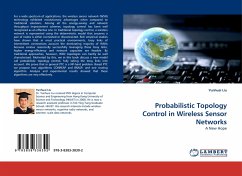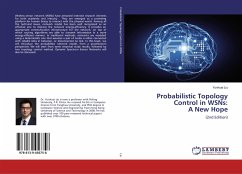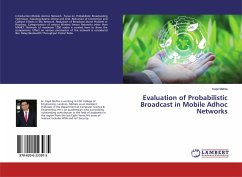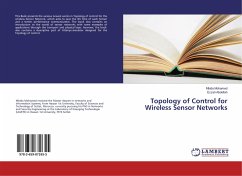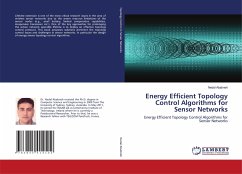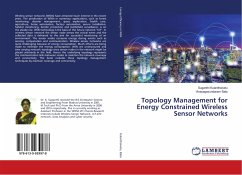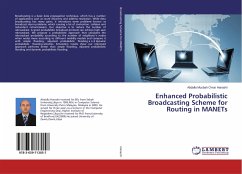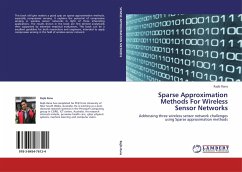For a wide spectrum of applications, the wireless sensor network (WSN) technology exhibited revolutionary advantages when compared to traditional solutions. Among all the energy-saving and network throughput improvement schemes, topology control has been well recognized as an effective one. In traditional topology control, a wireless network is represented using the deterministic model that assumes a pair of nodes is either connected or disconnected. Rich empirical studies have shown that in most practical environments, lossy links of intermittent connections account the dominating majority of WSNs because various reasons.By successfully leveraging these lossy links, higher energy-efficiency and network capacities are feasible. By traditional approaches, however, WSN topologies can hardly be well characterized. Motivated by this, we in this book discuss a new model call probabilistic topology control, fully taking the lossy links into account. We prove that in general PTC is a NP-hard problem. Based PTC we propose two algorithms CONREAP and BRASP, and one routing algorithm. Analysis and experimental results showed that these algorithms are very effectively.
Bitte wählen Sie Ihr Anliegen aus.
Rechnungen
Retourenschein anfordern
Bestellstatus
Storno

